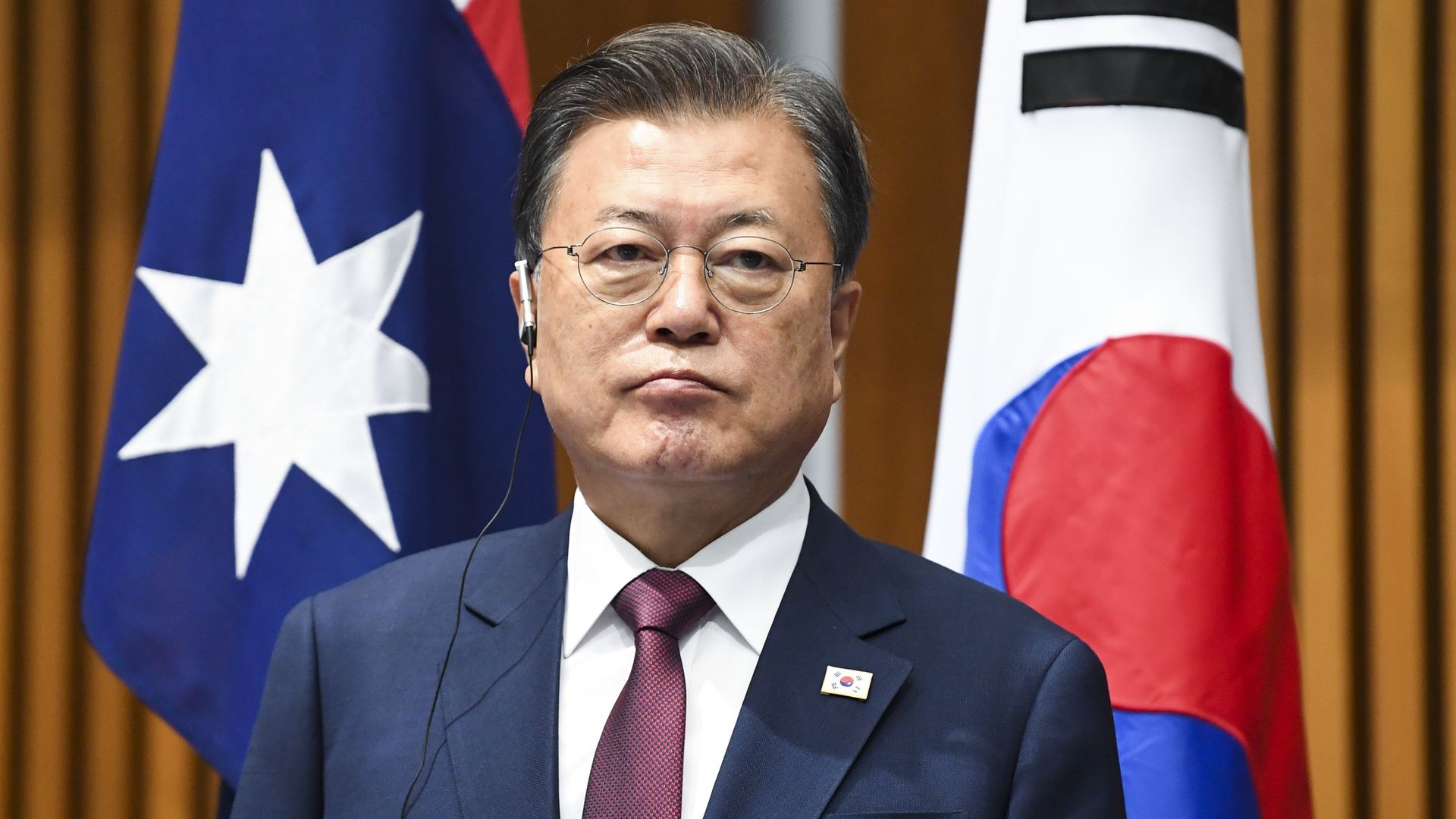Rebecca Falconer
AXIOS

South Korean President Moon Jae-in at a ceremony in Australia's Parliament House in Canberra on Monday. Photo: Lukas Coch - Pool/Getty Images
South Korean President Moon Jae-in said Monday the U.S., North Korea, his country and China have agreed "in principle" to declare a formal end to the Korean War. But they've yet to meet on the matter due to Pyongyang's demands.
Why it matters: Moon believes the move would help restart stalled negotiations between the countries on Pyongyang's denuclearization. A State Department spokesperson said in an emailed statement that U.S. officials were "prepared to meet without preconditions."
"We hope [North Korea] will respond positively to our outreach," the spokesperson added.
Context: There's been no formal treaty ending the 1950-53 Korean War. So South and North Korea are still technically at war, backed by the U.S. and China, respectively.
Driving the news: Moon said during a news conference in Canberra, Australia, that North Korean officials were insistent that the U.S. lift what they describe as a "hostile policy" toward the the country — a reference to American action such as sanctions over its nuclear weapons and missiles programs.
"Because of that, we are not able to sit down for a discussion or negotiation on the declarations" to officially end the war, Moon said.
"We hope that talks will be initiated," he added.
The bottom line: "The end-of-war declaration itself is not an ultimate goal," Moon said. But it would be an essential step in paving the way to restart negotiations on for denuclearization and peace on the Korean Peninsula, he said.
Go deeper: Biden's Korean War diplomacy
No comments:
Post a Comment